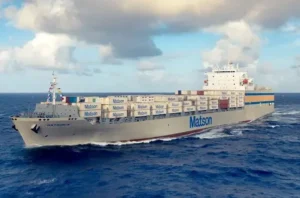To Choose between air freight and ocean freight depends on various factors, and each mode of shipping has its own advantages and disadvantages. We need to understand each shipping method deeply then decide which option is right for our shipping needs:
1. Speed:
-
Air Freight: Generally, air freight is much faster than ocean freight. If speed is a critical factor for your shipment, especially for time-sensitive goods, air freight may be the preferred choice.
-
Ocean Freight: Ocean freight is slower compared to air freight. Shipping times can vary significantly depending on the distance and the specific ocean route.
2. Cost:
-
Air Freight: While air freight is faster, it is also more expensive compared to ocean freight. The cost of air shipping is influenced by factors such as weight and volume.
-
Ocean Freight: Ocean freight is more cost-effective for large shipments or those that are not time-sensitive. It’s often the preferred choice for bulk shipments due to lower shipping costs.
3. Reliability:
-
Air Freight: Air freight is generally considered more reliable in terms of meeting delivery deadlines. Flights operate on a set schedule, reducing the likelihood of delays due to weather or other factors.
-
Ocean Freight: Ocean freight can be affected by weather conditions, port congestion, and other logistical challenges, which may lead to occasional delays.
4. Carbon Footprint:
-
Air Freight: While faster, air freight tends to have a higher carbon footprint compared to ocean freight. If environmental sustainability is a priority for your business, you may need to weigh this factor in your decision.
-
Ocean Freight: Ocean freight has a lower environmental impact per unit of cargo transported. It is generally considered a more environmentally friendly option.
5. Cargo Volume and Size:
-
Air Freight: Well-suited for smaller shipments, high-value goods, and products with a short shelf life. Airplanes have limitations on the size and weight of individual shipments.
-
Ocean Freight: Ideal for larger shipments, bulk goods, and products that are not time-sensitive. Ocean containers have more capacity to handle larger volumes.
6. Accessibility of Destination:
-
Air Freight: Airports are widespread, making air freight more accessible to a wide range of destinations. This is especially advantageous for landlocked or remote areas.
-
Ocean Freight: Ports are common in major cities and coastal areas. If your destination is well-connected by sea, ocean freight can be a convenient and cost-effective option.
7. Packaging Requirements:
-
Air Freight: Due to the nature of air transport, goods may need to be packaged more securely to withstand the potential for turbulence during flights.
-
Ocean Freight: Goods shipped by sea have a longer transit time, allowing for more relaxed packaging requirements compared to air freight.









